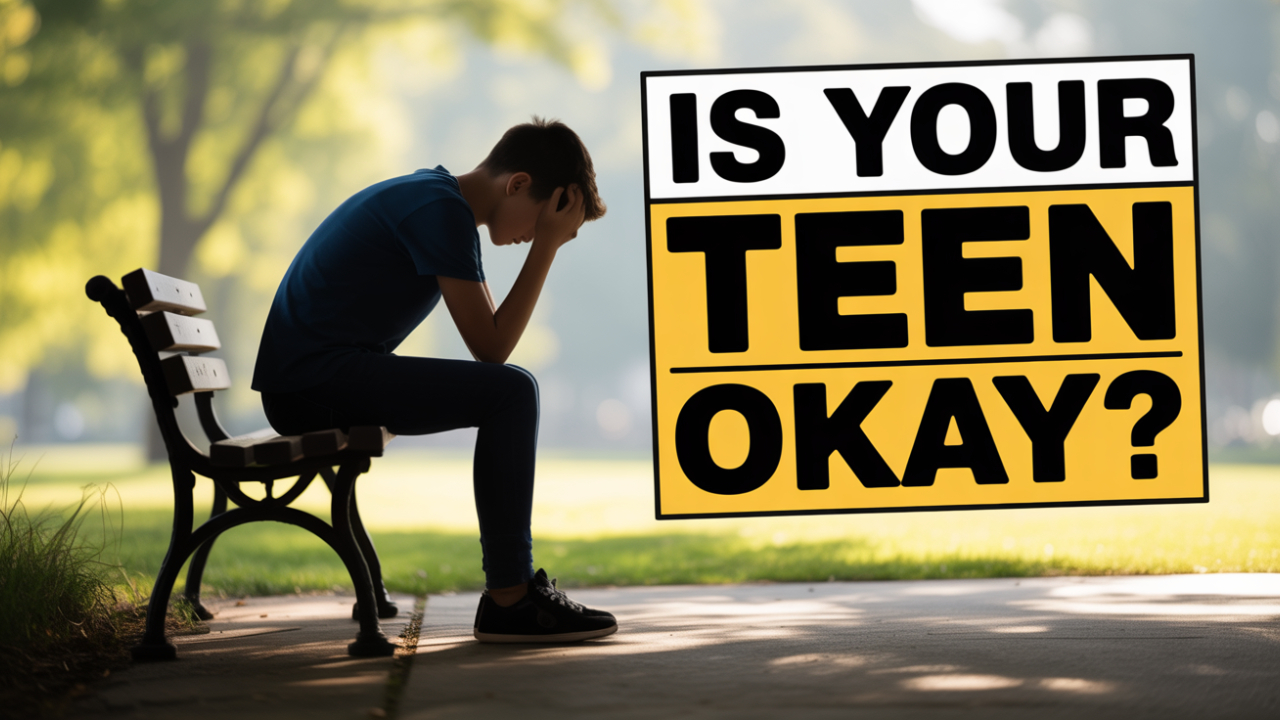Understanding Teen Mental Health Issues
Adolescence brings tremendous change, growth, and new challenges. While some emotional ups and downs are normal during these years, many teens experience genuine mental health struggles that require attention and support. Understanding these challenges is the first step toward creating a supportive environment where teens can thrive.
Mental health concerns among teenagers have become increasingly prevalent, affecting not just individual teens but their families, schools, and communities. When we recognize the signs early and provide appropriate support, we can help teens develop healthy coping strategies and build resilience that serves them throughout their lives.
This comprehensive guide explores the most common teenage mental health problems, their underlying causes, and practical ways to address them. Whether you’re a parent, educator, or teen yourself, you’ll find valuable insights and actionable strategies to promote better mental wellness.

Most Common Mental Health Issues in Teens
Understanding the landscape of teen mental health begins with recognizing the conditions that most frequently affect this age group. Each of these conditions presents unique challenges, but they often share similar underlying factors.
Anxiety Disorders
Anxiety disorders affect about 31.9% of adolescents, making them one of the most common mental health issues facing teens today. These disorders go far beyond typical teenage worries about tests or social situations. They involve persistent, overwhelming fear or worry that interferes with daily activities.
Teen anxiety can manifest in various forms, including generalized anxiety disorder, social anxiety, panic disorder, and specific phobias. Students might avoid school, social situations, or activities they once enjoyed. Physical symptoms like rapid heartbeat, sweating, or stomach problems often accompany the emotional distress.
Depression
Depression represents a leading cause of disability among teens, affecting their ability to function daily. Unlike occasional sadness or moodiness, clinical depression involves persistent feelings of hopelessness, worthlessness, and loss of interest in activities.
Teenage depression can look different from adult depression. Teens might appear irritable rather than sad, or they might engage in risky behaviors as a way to cope with their emotional pain. Academic performance often suffers, and relationships with family and friends may become strained.
Stress-Related Disorders
Chronic stress affects many teenagers as they navigate academic pressures, social challenges, and major life transitions. When stress becomes overwhelming and persistent, it can develop into more serious mental health concerns or exacerbate existing conditions.
Stress-related mental health concerns for adolescents often emerge during particularly challenging periods, such as exam seasons, family changes, or social conflicts. These experiences can trigger other mental health conditions or make existing ones worse.
Contributing Factors to Teen Mental Health Issues
Multiple factors contribute to the development of mental health disorders in teens. Understanding these influences helps us address the root causes rather than just the symptoms.
Social Media and Technology
Digital technology profoundly impacts teenage mental health. While social platforms can provide connection and support, they also create new sources of stress and comparison. Teens often experience cyberbullying, fear of missing out, and pressure to maintain a perfect online image.
Research shows that excessive social media use correlates with increased rates of depression and anxiety among teenagers. The constant comparison with others’ highlight reels can lead to feelings of inadequacy and low self-worth.
Academic Pressure
Educational expectations have intensified significantly, with teens facing pressure to excel academically while participating in extracurricular activities and planning for their future. This pressure comes from parents, teachers, colleges, and often from teens themselves.
The competitive academic environment can trigger anxiety disorders, depression, and chronic stress. Many teens report feeling overwhelmed by homework loads, standardized testing, and college preparation requirements.
Family Dynamics and Home Environment
Family relationships significantly influence teen mental health. Conflict at home, divorce, financial stress, or family mental health issues can all impact a teenager’s emotional wellbeing. Conversely, supportive family environments provide crucial protection against mental health challenges.
Communication patterns within families also matter greatly. Teens who feel heard and understood by their parents are more likely to seek help when they’re struggling and less likely to develop severe mental health problems.
Biological and Developmental Changes
The teenage brain undergoes significant development, particularly in areas responsible for emotional regulation and decision-making. These biological changes can contribute to emotional volatility and increased vulnerability to mental health conditions.
Hormonal changes during adolescence also affect mood and emotional stability. Some teens may be genetically predisposed to certain mental health conditions, which often emerge during the teenage years.
Identifying Signs of Mental Health Issues in Teens
Early recognition of mental health concerns allows for prompt intervention and better outcomes. However, distinguishing between normal teenage behavior and signs of mental health disorders can be challenging.
Emotional and Behavioral Changes
Watch for persistent changes in mood, behavior, or personality that last more than two weeks. These might include increased irritability, extreme mood swings, social withdrawal, or sudden changes in friend groups.
Behavioral red flags include declining academic performance, abandoning previously enjoyed activities, increased risk-taking behaviors, or changes in sleep and eating patterns. While some fluctuation is normal during adolescence, dramatic or persistent changes warrant attention.
Physical Symptoms
Mental health issues often manifest through physical symptoms. Teens might experience frequent headaches, stomach problems, fatigue, or changes in appetite. Sleep disturbances, including insomnia or sleeping too much, are also common indicators.
Some teens may engage in self-harm behaviors or express thoughts about death or suicide. Any mention of self-harm or suicide should be taken seriously and addressed immediately with professional help.
Social and Academic Impact
Signs of mental health issues in teens often appear in their relationships and school performance first. This might include avoiding friends and family, difficulty concentrating in school, frequent absences, or conflicts with teachers and peers.
Social isolation is particularly concerning, especially if a previously outgoing teen suddenly becomes withdrawn. Changes in communication patterns, such as refusing to talk about their day or becoming secretive about their activities, may also signal underlying issues.

Seeking Professional Help
Professional support plays a crucial role in addressing teenage mental health problems. Understanding when and how to seek help can make a significant difference in outcomes.
When to Seek Help
Consider professional help when mental health concerns interfere with a teen’s daily functioning, relationships, or safety. This includes persistent symptoms lasting more than two weeks, thoughts of self-harm or suicide, or when family support isn’t sufficient to address the issues.
Don’t wait for a crisis to seek help. Early intervention often leads to better outcomes and can prevent more serious problems from developing. Trust your instincts—if something feels wrong, it’s worth investigating with a professional.
Types of Professional Support
Various mental health professionals specialize in working with teenagers. Therapists trained in adolescent development understand the unique challenges teens face and can provide age-appropriate treatment approaches.
Many effective treatment options exist, including individual therapy, family therapy, group therapy, and when necessary, medication management. Programs like Virtual Intensive Outpatient Programs (IOPs) offer structured support while allowing teens to maintain their daily routines.
Treatment Approaches
Evidence-based therapies such as Cognitive Behavioral Therapy (CBT) and Dialectical Behavior Therapy (DBT) have proven particularly effective for treating common mental health issues in teens. These approaches help teens develop healthy coping strategies and emotional regulation skills.
Family involvement in treatment often improves outcomes significantly. When families work together with mental health professionals, teens receive more comprehensive support and are more likely to maintain progress over time.
Self-Care Strategies for Teens
While professional help is often necessary, teens can also develop personal strategies to support their mental wellness and build resilience.
Building Healthy Habits
Regular exercise, adequate sleep, and proper nutrition form the foundation of good mental health. Encourage teens to establish consistent sleep schedules, engage in physical activities they enjoy, and maintain balanced eating habits.
Mindfulness practices, such as meditation or deep breathing exercises, can help teens manage stress and anxiety. Many apps and online resources make these techniques accessible and appealing to teenagers.
Developing Coping Skills
Help teens identify healthy ways to manage stress and difficult emotions. This might include journaling, creative expression through art or music, spending time in nature, or talking with trusted friends or family members.
Problem-solving skills are particularly valuable for teens facing academic or social challenges. Teaching teens to break down problems into manageable steps and consider multiple solutions builds confidence and resilience.
Creating Support Networks
Strong social connections protect against mental health issues and provide crucial support during difficult times. Encourage teens to maintain friendships, participate in activities they enjoy, and build relationships with trusted adults.
Peer support can be particularly valuable, as teens often feel more comfortable sharing their experiences with others their age who may face similar challenges.

Supporting Your Teen: A Guide for Parents
Parents play a vital role in supporting their teen’s mental health, but knowing how to help can feel overwhelming. The key lies in creating an environment of trust, understanding, and open communication.
Creating Open Communication
Establish regular times to check in with your teen without making it feel like an interrogation. Ask open-ended questions about their experiences and listen without immediately offering solutions or judgments.
Validate your teen’s feelings, even when you don’t fully understand them. Phrases like “That sounds really difficult” or “I can see why that would be upsetting” show that you take their experiences seriously.
Recognizing Your Limits
While parental support is crucial, remember that you’re not expected to be your teen’s therapist. Know when to seek professional help and don’t hesitate to reach out to mental health experts when needed.
Take care of your own mental health as well. Supporting a teen with mental health challenges can be stressful, and you’ll be better able to help them if you’re managing your own wellbeing effectively.
Advocating for Your Teen
Work with your teen’s school to ensure they receive appropriate support and accommodations when needed. Many schools offer counseling services, modified schedules, or other supports for students with mental health challenges.
Stay informed about your teen’s treatment if they’re working with mental health professionals. While respecting their privacy is important, staying involved helps ensure they receive comprehensive care.
Building Resilience for Long-Term Mental Wellness
Recovery and resilience are possible for teens experiencing mental health challenges. With appropriate support, most teens can develop the skills and strategies they need to thrive.
The statistics surrounding teen mental health can feel overwhelming—approximately 1 in 5 teens experience a mental health condition during their adolescence, and suicide is the second leading cause of death for young people aged 10-24. However, these numbers also highlight the importance of addressing these issues proactively.
The encouraging news is that effective treatments exist, and early intervention significantly improves outcomes. Unfortunately, only about 20% of teens with mental health issues currently receive the necessary treatment, indicating a substantial opportunity for improvement.
Building resilience involves developing multiple strategies and support systems. This includes professional treatment when needed, strong family and peer relationships, healthy coping strategies, and a sense of purpose and hope for the future.
Remember that mental health is not a destination but an ongoing journey. Even teens who receive treatment and develop strong coping skills may face challenges at different points in their lives. The goal is to build the foundation and skills needed to navigate these challenges successfully.
Recovery takes time, and setbacks are normal parts of the process. Celebrate small victories and maintain hope, even during difficult periods. With patience, persistence, and appropriate support, teens can overcome mental health challenges and develop the resilience needed for long-term wellness.
If you or someone you know is struggling with mental health issues, don’t wait to seek help. Share this article with friends or family who may benefit from this information. Most importantly, reach out to a mental health professional who can provide personalized guidance and support.
For additional resources and information about teen mental health services, visit Adolescent Mental Health in Orange County to learn more about virtual treatment options and comprehensive support programs designed specifically for teenagers and their families.
Frequently Asked Questions
1. What are the most common mental health issues among teens?
The most common mental health challenges in teenagers include anxiety disorders, depression, eating disorders, attention-deficit/hyperactivity disorder (ADHD), and behavioral issues. Many teens also struggle with stress, low self-esteem, and the effects of bullying or social media pressures. Recognizing these problems early can help prevent them from worsening and support a teen’s emotional growth.
2. How can I tell if my teenager is struggling with their mental health?
Warning signs may include noticeable changes in mood, behavior, or academic performance. Teens might withdraw from friends and family, lose interest in activities they once enjoyed, experience sleep or appetite changes, or express feelings of hopelessness. In more severe cases, they might talk about self-harm or show risky behaviors. Open communication and professional evaluation can help determine if they need additional support.
3. What causes mental health issues in teenagers?
Teen mental health problems often result from a combination of factors. These can include hormonal and brain development changes, family conflict, academic and social pressures, trauma, bullying, and even genetic predisposition. Environmental factors like exposure to violence or chronic stress also play a role. Understanding these causes helps caregivers and professionals address both the symptoms and underlying issues.
4. How can parents and caregivers support a teen’s mental health?
Parents can support their teen by maintaining open, judgment-free communication, encouraging healthy habits like regular sleep and exercise, and seeking professional help when needed. Creating a supportive and understanding home environment can make it easier for teens to share their struggles. Counseling, peer support groups, and school-based programs are also valuable resources for teens in need.









